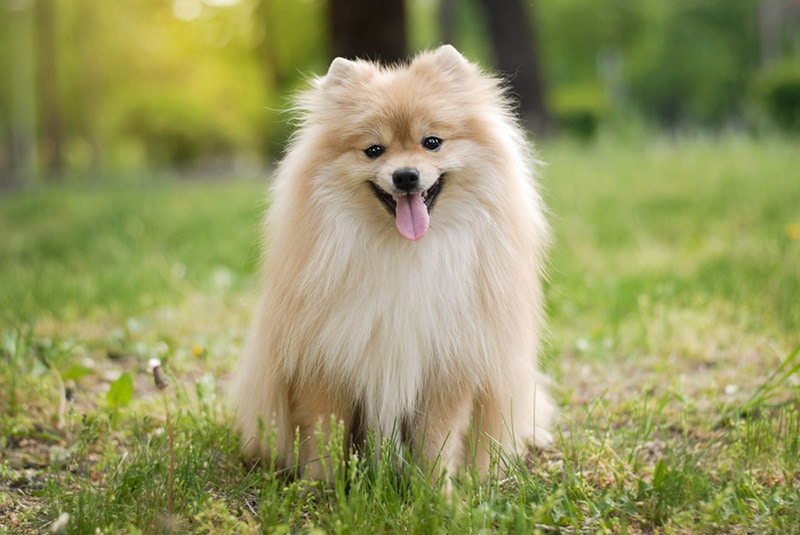Can Dogs Eat Maple Syrup? Vet Approved Facts & Nutrition Guide

Updated on
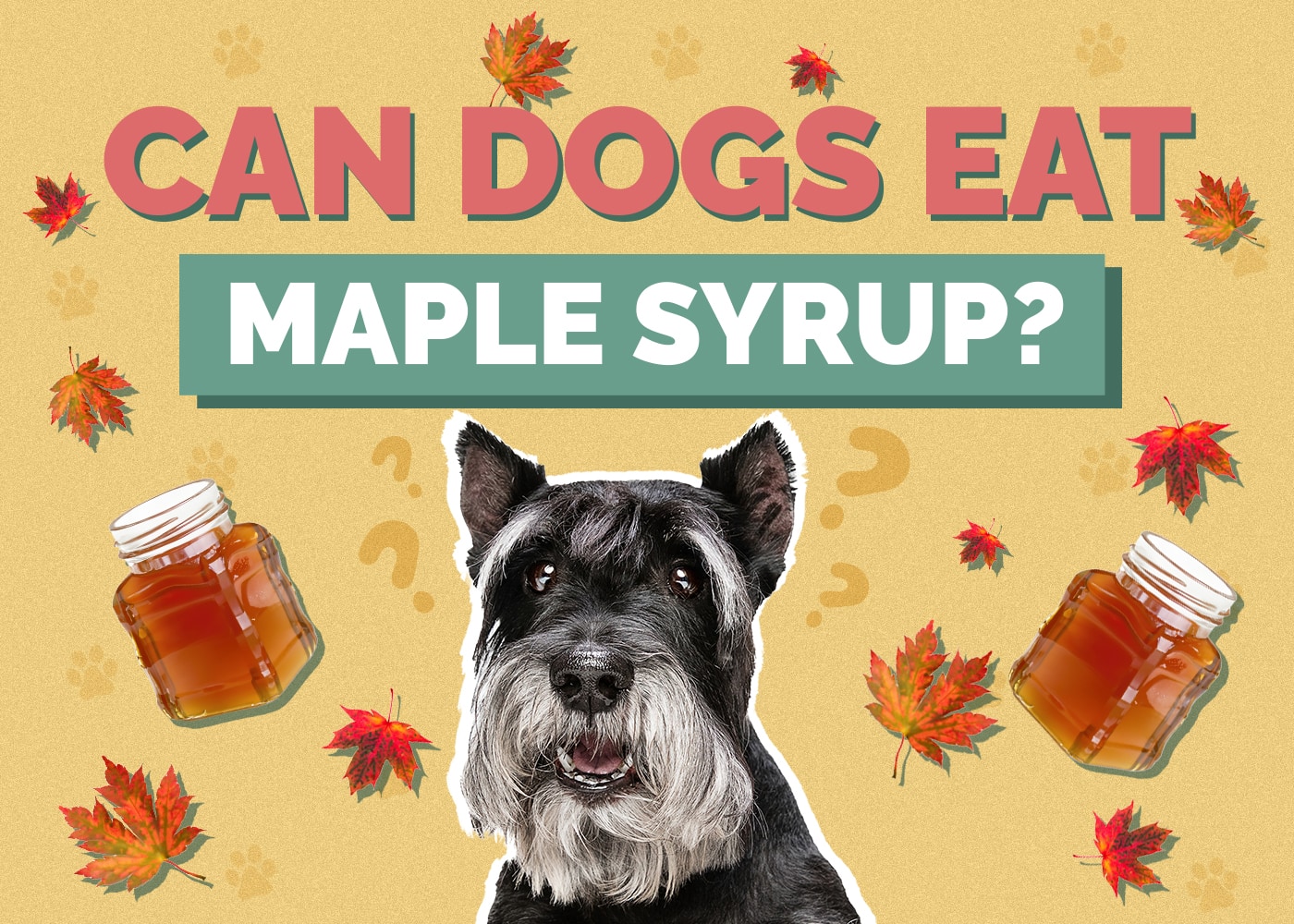
Click to Skip Ahead
This article has been reviewed for factual accuracy by a qualified veterinarian, using information available at the time of publishing. Dog owners are urged to consult with their veterinarian when making dietary decisions for their pet. This article is designed to provide general information but it does not take into account your pet’s health status or circumstances.
Many dogs have an amazing knack for convincing their owners that any food is safe for them, thanks to their doleful eyes and convincing stares. However, a lot of human foods, or foods that we consider primarily for human consumption, are not safe for our canine companions. Grapes, raisins, chocolate, and garlic are all toxic to dogs, and we shouldn’t feed these ingredients to our pet pooches.
And then there are foods like pure maple syrup, that are not toxic and have some health benefits but should only be fed in very small quantities because larger amounts can be very unhealthy for dogs. Artificial maple syrup should be avoided altogether because it uses artificial sweeteners like xylitol, which are highly dangerous to dogs.
Is Maple Syrup Safe for Dogs?
The sticky, sweet product is very popular with people, although it should only be enjoyed in moderation by humans. It is also considered safe for dogs, insofar as it is not toxic. However, it can cause an upset stomach if a dog is not used to consuming it and it is high in sugar so should be given to dogs only in moderation and as an occasional treat.
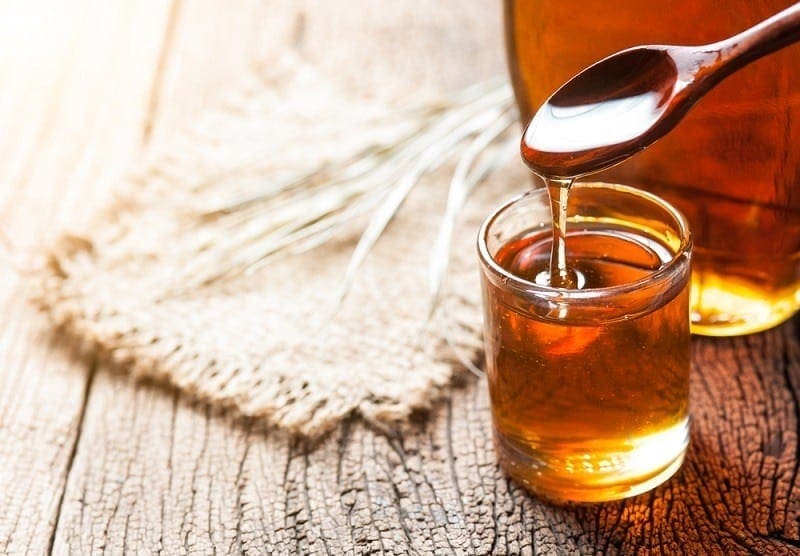
What Is Maple Syrup?
Maple syrup is a sap that comes from the maple tree. It is syrupy in its consistency and high in natural sugars. It is a popular alternative to sugar and honey, and it is sometimes described as being a healthier alternative to honey, although it does depend on the varieties of both sweet products. Maple syrup is enjoyed around the world but much of the world’s maple syrup comes from Canada.
The Benefits
Maple syrup is not toxic, and it does have possible health benefits for dogs, as well as for humans.
- Antioxidants: Antioxidants help prevent and fight damage from oxidation. Antioxidants are commonly found in berries, as well as other fruit, and can also be found in honey as well as maple syrup.
- Vitamins and Minerals: Zinc, potassium, manganese and riboflavin are found in maple syrup.
The Potential Pitfalls
Despite these benefits, maple syrup is not considered nutritionally beneficial for dogs. This is because it can only be fed in such small amounts that your dog won’t be getting much of the beneficial ingredients. As such, it is best to consider maple syrup a rare treat and not to consider it part of a healthy, balanced diet. The biggest potential problems with maple syrup are:
- Sugar: Maple syrup is packed with sugar, and too much sugar is bad for dogs. It causes weight gain and obesity over time, as well as a host of secondary problems. This is the biggest problem with feeding sugary treats like maple syrup, even though your dog will likely love them.
- Upset Stomachs: The high sugar content can also cause an upset stomach, especially if your dog isn’t used to these types of foods: another good reason to avoid giving maple syrup.
- Artificial Maple Syrup: Natural maple syrup is safe in moderation, but artificial maple syrup is made using xylitol. Xylitol can cause a drop in blood sugar and liver damage.
The 5 Healthy Treats You Can Give Dogs
It is safe to give natural maple syrup as an occasional treat and in moderation, but there are healthier treats that you can give a dog instead. Some treats to consider include the following.
1. Peanut Butter
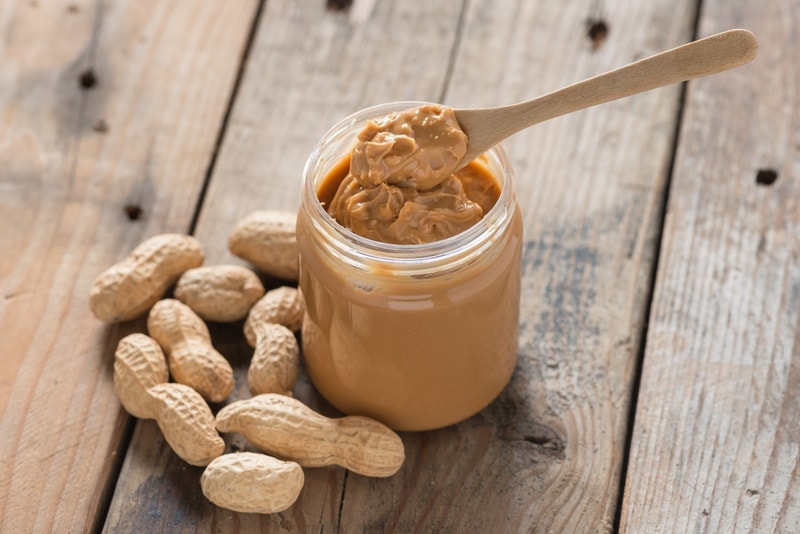
Peanut butter is packed full of protein and its sticky texture is especially popular with most canine companions. It is high in sugar, however, and many peanut butters also have added salt, but you can try all natural brands. Avoid diet variants completely because they often use xylitol.
2. Blueberries
Blueberries are very high in antioxidants. They are also small, easy to eat, and juicy. Like a lot of treats, they are sugary, though, so you should not feed too many or give these little treats too often.
3. Bananas
Low in cholesterol and sodium, bananas are a relatively healthy treat. But, like most fruits, bananas are high in sugar so this is another food that should be given as an occasional treat and not as part of your dog’s diet.
4. Apple
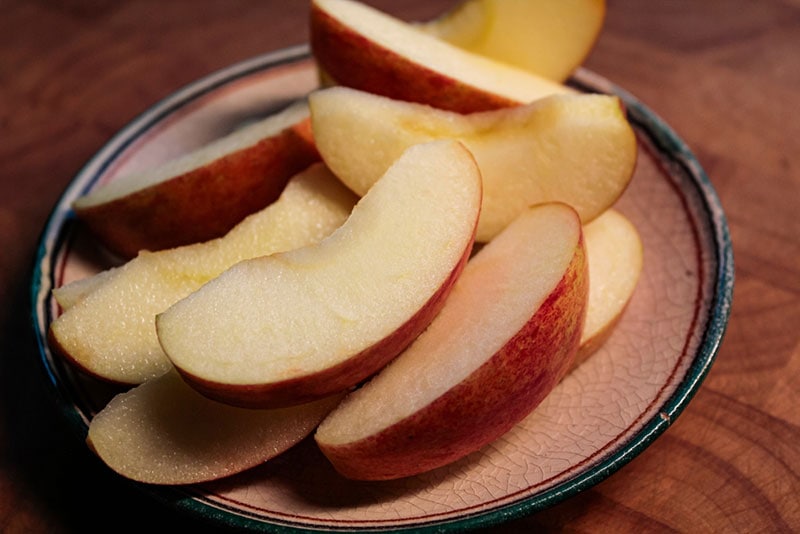
Apples contain vitamins A and C as well as fiber so they make a good addition to your dog’s diet. They can even help improve bad breath. But, the seeds are toxic, and you will need to remove the core and seeds before feeding them.
5. Chicken
Chicken is a great source of protein and is commonly found in dog foods because it is a lean meat protein. You can cook up some plain chicken, cut it into small pieces, and use this as a healthy treat option for your dog, or cook chicken and add it on top of your dog’s meal.
Conclusion
Dogs love to share human food, but not all of it is good for them. Pure maple syrup is not toxic and does have some health benefits, but the benefits are small and the sweet ingredient should be given as an occasional treat and not as part of a dog’s daily diet.
Artificial maple syrup should not be given at all because it will likely contain ingredients that are toxic to your dog.
Featured Image Credit to: piviso. Pixabay





